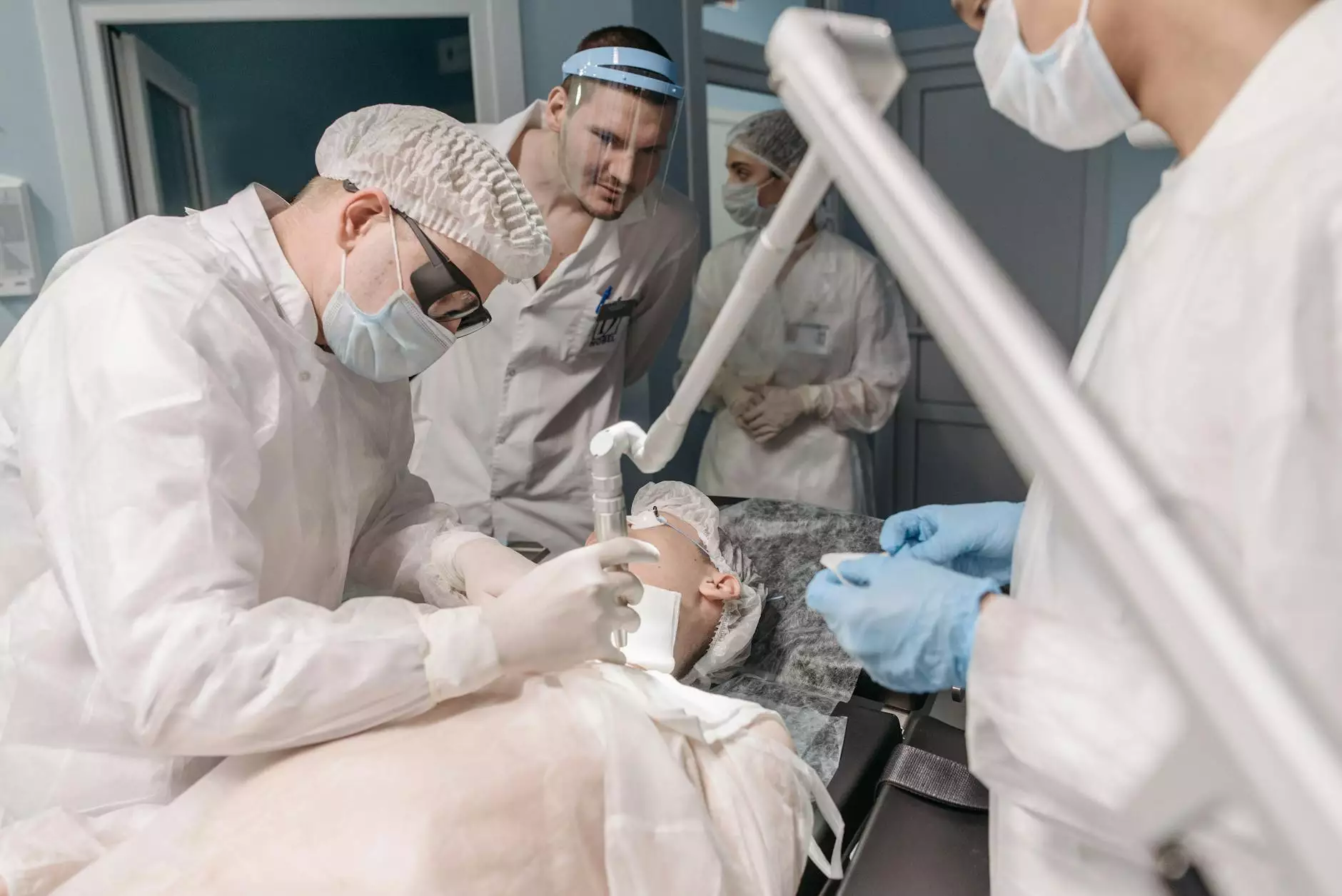Warning Signs of Blood Clot

Introduction
As leading doctors in the field of vascular medicine, the Vein Center of Arizona is dedicated to providing excellent health and medical services to patients dealing with various vascular conditions. In this article, we will focus on the warning signs of blood clots, a condition that can potentially lead to serious health complications if left untreated.
Understanding Blood Clots
Blood clots are gel-like clumps that form when blood thickens and clumps together. While blood clots are a necessary part of the body's natural healing process, they can become problematic when they form within blood vessels and obstruct proper blood flow.
Common Warning Signs
The Importance of Early Detection
Recognizing the warning signs of blood clots is crucial for early detection and prompt medical intervention. Here are some common symptoms to be aware of:
1. Swelling and Pain
One of the most noticeable warning signs of a blood clot is swelling, often accompanied by pain in the affected area. This could occur in the legs, arms, or other parts of the body.
2. Warmth and Redness
If you notice warmth and redness in a specific area, it could indicate the presence of a blood clot. Pay close attention to these signs, especially if they are accompanied by other symptoms.
3. Shortness of Breath
Blood clots that travel to the lungs can cause a potentially life-threatening condition known as a pulmonary embolism. Shortness of breath, chest pain, and coughing up blood are all critical warning signs that should not be ignored.
4. Weakness or Numbness
If you experience sudden weakness or numbness in one side of your body, it could be an indication of a blood clot or stroke. Seek immediate medical attention if you notice such symptoms.
5. Dizziness and Fainting
Blood clots in the brain may disrupt normal blood flow and cause dizziness or fainting spells. If you experience these symptoms, it is essential to consult with medical professionals without delay.
Professional Vascular Medicine Assistance at Vein Center of Arizona
At the Vein Center of Arizona, we understand the importance of accurate diagnosis and tailored treatment plans for individuals with potential blood clot concerns. Our specialized doctors and medical staff are highly trained in the field of vascular medicine, ensuring that patients receive the best possible care.
Treatment Options
Upon early detection of blood clots, our doctors can utilize various treatment options to address the condition effectively. These may include:
- Anticoagulant Medications: These medications can help thin the blood and prevent the formation of new blood clots.
- Thrombolytic Therapy: In severe cases, our medical professionals may recommend thrombolytic therapy to dissolve blood clots quickly.
- Vena Cava Filters: Vena cava filters are devices implanted to catch blood clots before they reach vital organs, such as the lungs.
- Compression Stockings: Compression stockings can help improve blood flow and prevent clot formation in the legs.
Prevention and Lifestyle Changes
While medical intervention is crucial for treating blood clots, there are several preventive measures and lifestyle changes that individuals can adopt to reduce the risk of developing clots. These include:
- Maintaining an Active Lifestyle: Regular exercise and physical activity can promote circulation and reduce the risk of blood clots.
- Healthy Diet Choices: Consuming a diet rich in fruits, vegetables, and whole grains while maintaining proper hydration can contribute to overall vascular health.
- Avoiding Tobacco and Alcohol: Smoking and excessive alcohol consumption can increase the risk of blood clot formation, so it is advisable to avoid these habits.
- Proper Medication Management: If you are on any medications, it is important to follow your doctor's instructions diligently and discuss any potential side effects or concerns related to blood clot risk.
Conclusion
Being aware of the warning signs of blood clots is essential for prompt detection and treatment. If you experience any of the symptoms mentioned in this article, it is crucial to consult with our experienced doctors at the Vein Center of Arizona. Remember, early intervention can make a significant difference in preventing further complications and ensuring a healthier life.



